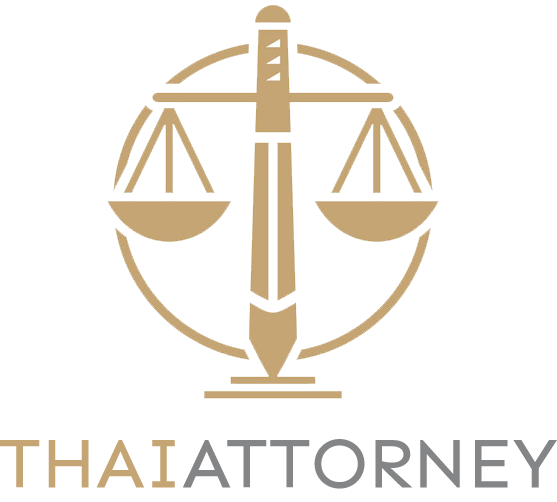A prenuptial agreement, often referred to as a “prenup,” is a legal contract entered into by a couple before marriage that outlines the division of assets, property rights, and financial responsibilities in the event of divorce or separation. In Thailand, prenuptial agreements are recognized under the Civil and Commercial Code (CCC) and serve as an essential tool for financial planning and legal protection. While many couples may initially perceive prenups as unnecessary or unromantic, they offer a wide range of benefits that extend beyond asset protection, ensuring clarity, fairness, and security in marital relationships.
Legal Framework of Prenuptial Agreements in Thailand
Prenuptial agreements in Thailand are governed by Sections 1475 to 1482 of the Civil and Commercial Code. The law allows couples to stipulate how property, income, debts, and other financial matters will be handled during marriage and upon dissolution.
A prenup must be executed in writing and registered with the local district office prior to the marriage to be legally enforceable. The agreement can specify arrangements concerning personal and marital property, business assets, inheritance matters, and financial obligations. Importantly, a valid prenup must be voluntarily entered into by both parties, without coercion, and with full disclosure of assets.
Asset Protection and Financial Security
One of the most significant benefits of a prenuptial agreement in Thailand is asset protection. A prenup clearly delineates which assets are considered individual property and which are marital property. This distinction helps prevent disputes over property ownership in the event of divorce.
For individuals entering marriage with substantial personal assets, family business interests, or inherited property, a prenup ensures that these assets remain protected and separate from marital property claims. This security can reduce financial risk and provide peace of mind for both parties.
Debt Management and Liability Protection
Prenuptial agreements also allow couples to address debt allocation. During marriage, each spouse may have personal debts or incur new liabilities. Without a prenup, creditors may pursue shared property to satisfy debt obligations, potentially creating financial strain.
By clearly defining responsibility for existing and future debts, a prenup protects each spouse from being held accountable for the other’s liabilities. This safeguard helps maintain financial independence and reduces the potential for conflict over money matters.
Clarity in Property Division
Dividing property during divorce can often be complicated, emotional, and time-consuming. A prenuptial agreement provides clarity by establishing in advance how property will be divided.
Whether a couple owns real estate, investment portfolios, or business assets, a prenup lays out explicit rules for division. This clarity reduces legal disputes, minimizes court involvement, and ensures that property distribution is consistent with both parties’ intentions.
Protection of Business Interests
For entrepreneurs, investors, and professionals, a prenup is particularly valuable in protecting business interests. A prenuptial agreement can specify which business assets remain personal property and how business profits or shares will be treated in the event of divorce.
This protection is crucial for maintaining the continuity of business operations, preventing unnecessary disruptions, and safeguarding partners, employees, and stakeholders from marital disputes affecting the enterprise.
Inheritance Planning and Family Obligations
Prenuptial agreements can also address inheritance and family obligations. Couples may stipulate how inherited property will be treated during marriage, ensuring that family wealth or heirlooms remain with the intended heirs.
In blended families or cases involving children from previous relationships, a prenup helps clarify rights and responsibilities, reducing the likelihood of inheritance disputes and protecting family harmony.
Encouragement of Open Communication
Drafting a prenuptial agreement requires couples to openly discuss finances, assets, and expectations prior to marriage. This process encourages honest communication and financial transparency, fostering mutual understanding and reducing misunderstandings.
By addressing potentially sensitive topics proactively, couples can strengthen their relationship and create a foundation of trust and cooperation.
Minimization of Legal Disputes
Divorce proceedings can be emotionally charged and expensive. Prenuptial agreements serve as a preemptive measure to reduce the likelihood of disputes over property, finances, and assets.
With a legally enforceable prenup in place, courts generally respect the terms of the agreement, provided it was entered into voluntarily and without coercion. This reduces the burden on the judicial system, saves time, and minimizes stress for both parties.
Financial Predictability and Stability
A prenuptial agreement provides financial predictability for both spouses. By clearly outlining asset ownership, debt responsibility, and financial obligations, a prenup allows couples to plan for the future with confidence.
This predictability helps in long-term financial planning, including retirement, investments, and education funding. Both spouses can make informed decisions knowing that their financial interests are safeguarded.
Flexibility to Tailor Agreements
Prenuptial agreements in Thailand offer significant flexibility. Couples can negotiate and customize terms to suit their unique circumstances and priorities.
For example, a prenup can cover:
-
Property rights and ownership distinctions
-
Debt allocation and responsibility
-
Management of business interests
-
Spousal support or alimony arrangements
-
Inheritance rights and succession planning
This flexibility ensures that the agreement aligns with the couple’s values, financial situation, and family obligations.
Reinforcement of Legal Protection
Prenuptial agreements are legally recognized in Thailand and provide enforceable protection. Courts generally uphold prenups if they meet legal requirements, including voluntary execution, registration before marriage, and full disclosure of assets.
By reinforcing legal protection, prenups reduce uncertainty and help spouses avoid potentially contentious litigation in the event of separation or divorce.
Benefits Beyond Divorce
While prenups are often associated with divorce, their benefits extend beyond marital dissolution. Prenups also promote responsible financial management during marriage by clarifying contributions, expenditures, and expectations.
The agreement can serve as a roadmap for shared financial goals, including property acquisition, investments, and family planning, fostering a more collaborative and harmonious financial relationship.
Importance of Legal Guidance
Drafting a prenuptial agreement requires careful legal consideration to ensure compliance with Thai law and enforceability. Professional legal guidance helps:
-
Ensure the agreement meets formal requirements
-
Advise on disclosure obligations
-
Address complex issues such as cross-border assets or inheritance
-
Tailor provisions to individual circumstances
Professional assistance minimizes legal risks and ensures that the prenup serves its intended protective purpose effectively.
Conclusion
The benefits of a prenuptial agreement in Thailand are substantial and multifaceted. Beyond protecting assets and clarifying property division, prenups promote financial transparency, responsible planning, and open communication between spouses. They safeguard both parties from financial risk, protect business and family interests, and provide legal certainty in the event of divorce or separation.
While often perceived as a measure for couples entering marriage with significant wealth, prenups are equally valuable for couples seeking to establish clear expectations, minimize conflict, and ensure long-term financial stability. In Thailand’s legal framework, a well-drafted prenuptial agreement is not merely a protective tool—it is a strategic step toward marital clarity, security, and harmony.

